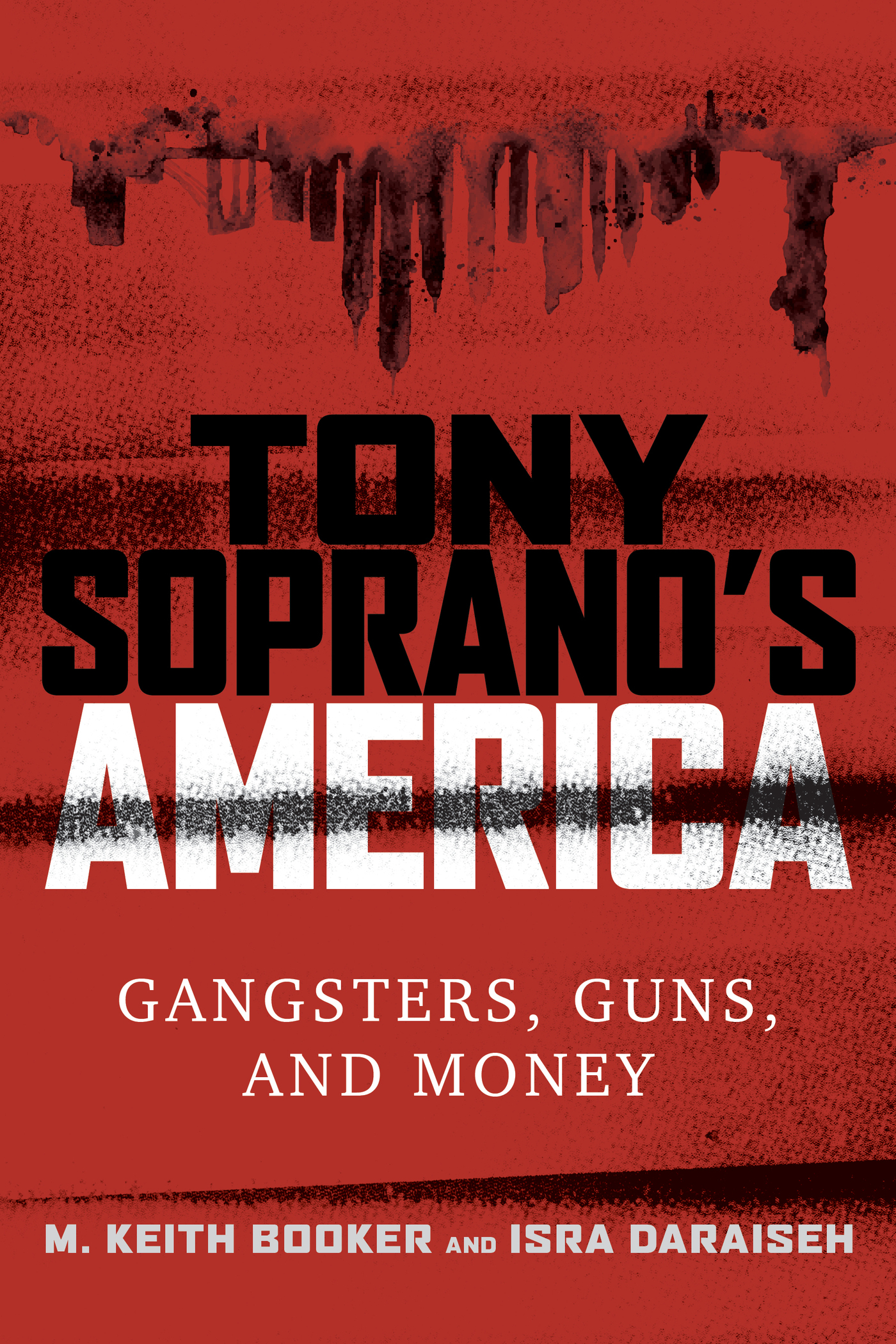Tony Sopranos America
Tony Sopranos America
Gangsters, Guns, and Money
M. Keith Booker
Isra Daraiseh
ROWMAN & LITTLEFIELD
Lanham Boulder New York London
Published by Rowman & Littlefield
A wholly owned subsidiary of The Rowman & Littlefield Publishing Group, Inc.
4501 Forbes Boulevard, Suite 200, Lanham, Maryland 20706
www.rowman.com
Unit A, Whitacre Mews, 26-34 Stannary Street, London SE11 4AB
Copyright 2017 by Rowman & Littlefield
All rights reserved. No part of this book may be reproduced in any form or by any electronic or mechanical means, including information storage and retrieval systems, without written permission from the publisher, except by a reviewer who may quote passages in a review.
British Library Cataloguing in Publication Information Available
Library of Congress Cataloging-in-Publication Data
Names: Booker, M. Keith author. | Daraiseh, Isra, 1988 author.
Title: Tony Sopranos America : gangsters, guns, and money / M. Keith Booker and Isra Daraiseh.
Description: Lanham : Rowman & Littlefield, 2017. | Includes bibliographical references and index.
Identifiers: LCCN 2016039443 (print) | LCCN 2016051719 (ebook) | ISBN 9781442273221 (hardback : alk. paper) | ISBN 9781442273238 (electronic)
Subjects: LCSH: Sopranos (Television program)
Classification: LCC PN1992.77.S66 B66 2017 (print) | LCC PN1992.77.S66 (ebook) | DDC 791.45/72dc23
LC record available at https://lccn.loc.gov/2016039443
 TM The paper used in this publication meets the minimum requirements of American National Standard for Information Sciences Permanence of Paper for Printed Library Materials, ANSI/NISO Z39.48-1992.
TM The paper used in this publication meets the minimum requirements of American National Standard for Information Sciences Permanence of Paper for Printed Library Materials, ANSI/NISO Z39.48-1992.
Printed in the United States of America
For Isra Daraiseh, my partner in crime
M. Keith Booker
For Keith Booker,
Isra Daraiseh
Introduction
After a bean-ball incident against the St. Louis Cardinals on September 18, 2015, Chicago Cubs manager Joe Maddon compared the Cardinals (longtime hated rivals of the Cubs) to gangsters: I dont know who put out the hit. I dont know if Tony Soprano was in the dugout, but I didnt see him in there. But were not going to put up with that. References to the gangsters of the HBO series The Sopranos do in fact abound in contemporary American culture, making clear that, by the time the series ended its run in 2007, it had supplanted the Godfather saga as the best-known gangster narrative in American popular culture. This prominence of course is not surprising, given the almost universal critical acclaim received by the series, including the declaration by Stephen Holden in the New York Times (after only the first season of the series) that the show might just be the greatest work of American popular culture of the last quarter century.
The debut of The Sopranos in January 1999 helped to usher in one of the most interesting years in American cultural history. Much of the year, of course, was dominated by anticipation of the coming end of the millenniumeven if, strictly speaking, the twentieth century and the millennium in which it was situated did not technically end until the end of 2000. This anticipation, meanwhile, included both the obligatory revving up for the Apocalypse among certain religious sects, though in this case the new age of computers introduced a novel element to apocalyptic anxiety with the so-called Y2K scare.
The much-anticipated Star Wars: Episode IThe Phantom Menace was the top film at the box office in 1999. The undistinguished American Beauty would win the Oscar for Best Picture of the year, though a number of more interesting films were released during 1999, including Fight Club, Being John Malkovich, Magnolia, and Three Kings, not to mention game-changing genre films such as The Matrix and The Blair Witch Project. In television, the game-show spectacle Who Wants to Be a Millionaire? premiered in August 1999 and became the sensation of the coming television season. For many, however, the X-Files episode Millennium, broadcast on November 28 but set at the coming of the new year, was the highlight of the season, punctuated by a first kiss between Mulder and Scully at the stroke of midnight on December 31, 1999. Afterward, Mulder looks around and notes that the world didnt end, referring both to the coming of the new millennium and to the long-anticipated kiss.
That kiss might have changed The X-Files forever, but numerous commentators have suggested that The Sopranos changed television forever, bringing new standards of quality and sophistication to a medium that, in the view of many, was sorely lacking in such standards. Indeed, The Sopranos was almost certainly the single most important series in the rise of what came to be known as quality TV, part of a wave of programs from HBO that led Robert J. Thompson to argue that the term HBO-style series had, by 2007, trumped the term quality TV as a descriptor for high artistic achievement in the medium (xviii).
This volume seeks to delineate some of the key reasons why The Sopranos is so important in television history, while also exploring some of the most important ways in which The Sopranos resonates with American cultural history as a whole. Running from 1999 to 2007, The Sopranos is set in the world of that period and engages with a number of contemporary events, ranging from the Bill Clinton/Monica Lewinsky scandal, to the 9/11 bombings and subsequent war on terror, to Native American protests over the celebration of Columbus Day. But this involvement with specific current events is relatively superficial and incidental. The Sopranos is less interested in a vivid depiction of the way specific events in the larger world affect the day-to-day lives of its characters than it is in placing these lives within a much bigger historical narrative, and within the context of much bigger and more fundamental issues.
The Sopranos deals in a realistic way with a number of serious, life-or-death issues within the experiences of its characters, but perhaps the central reason that the series has such a sense of gravity and importance is that it addresses so many issues that have been fundamental to the march of modern historyand on a number of different levels. The series, for example, is crucially informed by the struggle between tradition and modernity that has perhaps been the central struggle of the entire modern era of history. On a more local scale, it engages in dialogues with the entire history of gangsterism in America, as well as with the entire history of the representation of gangsterism in American popular culture. Meanwhile, the business of organized crime is set in dialogue with American business as a whole, providing one of popular cultures most trenchant and detailed interrogations of the role of capitalism in American history, even if it provides no answers to the questions it poses and suggests no real alternatives to the capitalist system that it questions. The series is also highly conscious of the fraught history of race relations in the United States, focusing on the Italian American immigrant experience as a component of Americas multiracial and multicultural society.
It is, of course, not surprising that a work of popular culture such as The Sopranos should deal with such important and fundamental issues. After all, as Richard Slotkin has noted, film narratives describing the immigrant experience in America, while becoming more and more prominent since the 1970s, have been dominated by the gangster genre, which has initiated a cult of the Mafia in which organized crime becomes a locus for the attempted preservation of Old World values presumably lost in the transition to America:
Next page
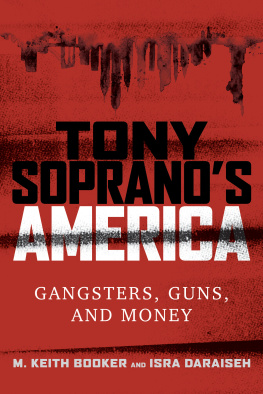



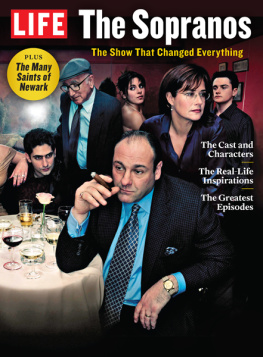
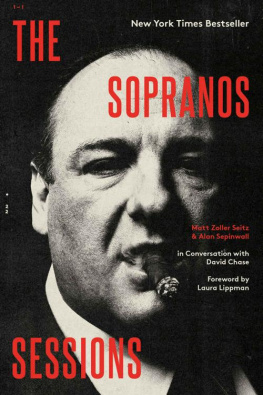

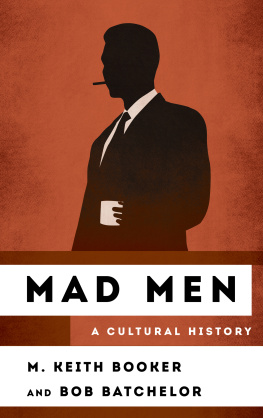


 TM The paper used in this publication meets the minimum requirements of American National Standard for Information Sciences Permanence of Paper for Printed Library Materials, ANSI/NISO Z39.48-1992.
TM The paper used in this publication meets the minimum requirements of American National Standard for Information Sciences Permanence of Paper for Printed Library Materials, ANSI/NISO Z39.48-1992.